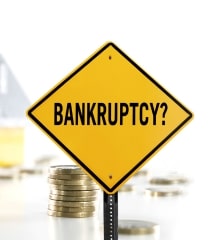Secured Debt Explained
As you plan for bankruptcy, it is important to understand the difference between secured and unsecured debt. A knowledgeable Atlanta, GA
bankruptcy attorney can help you make informed decisions about how to prioritize your debts.
Collateral — something you pledge as security for repayment of a loan — is not required for unsecured debt, like credit cards. If you default
on the loan, the lender cannot seize any of your assets. However, if you do not repay a secured debt, the creditor can seize whatever property
you put up as collateral. Legally, the lender has a lien on that property. For example, with a car loan, the lender can repossess the car if
you default. If you do not make your house payments, the mortgage holder can foreclose. The lender then sells the repossessed property to
cover the debt. If the sale realizes less than the debt, the lender can secure a court order forcing you to repay the full amount owed or the
balance remaining after the collateral is sold.
While car and house debts are assumed voluntarily, secured debts like income and property taxes are not. Nonetheless, the lender can place a
lien on your assets if you do not pay these involuntary debts. For example, the government can garnish your wages if you do not pay your taxes.
Under Chapter 7, if you are current on your payments for secured debt, you can give up the
property and discharge any remaining debt. Or, if the property is exempt, you can reaffirm or redeem the debt. However, if you cannot bring your payments current, the property may be repossessed.
If your lender accelerates the loan and declares the entire balance due, consider filing for
Chapter 13. Your reorganization plan may give you the opportunity to bring your payments up to date and
pay the balance in manageable amounts. A skilled bankruptcy attorney can negotiate with the lender to get the amount you owe reduced.
DebtStoppers can help you protect your assets. Call 404-796-7161to schedule a free consultation today.


